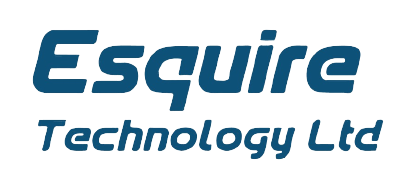- [email protected]
- Tejgaon I/A, Esquire Tower, Dhaka-1208
E-bit ERP

Experience the power of seamless integration and comprehensive management solutions with ebit ERP. Designed to empower businesses of all sizes, ebit offers a suite of modules covering inventory management, help desk support, supply chain optimization, HR management, sales tracking, and specialized manufacturing capabilities for apparel, textile, and footwear industries. With its robust features, industry-specific modules, and user-friendly interface, ebit ERP empowers businesses to optimize operations, drive growth, and stay ahead of the competition in today's dynamic market landscape.
Key Features:
-
Inventory Management:
- Real-time Inventory Tracking: Monitor stock levels, track inventory movements, and automate replenishment processes to ensure optimal stock levels and minimize stockouts.
- Multi-location Management: Manage inventory across multiple warehouses or locations, enabling efficient distribution and fulfillment operations.
- Inventory Forecasting: Utilize advanced forecasting algorithms to predict demand, optimize inventory levels, and reduce excess inventory costs.
- Batch and Serial Number Tracking: Track and trace individual items through batch and serial number identification, ensuring product quality and compliance with regulatory requirements.
-
Help Desk Support:
- Ticket Management: Centralize customer inquiries and support requests into a unified ticketing system, ensuring timely response and resolution.
- Knowledge Base: Build a repository of FAQs, troubleshooting guides, and best practices to empower customers and support agents with self-service resources.
- SLA Management: Define service level agreements (SLAs) and automate escalations to ensure timely resolution of support tickets and uphold service commitments.
-
Supply Chain Optimization:
- Supplier Management: Streamline vendor relationships, track supplier performance, and negotiate favorable terms to optimize procurement processes.
- Demand Planning: Forecast demand, align production schedules, and optimize inventory levels to meet customer demand while minimizing carrying costs.
- Logistics Management: Optimize transportation routes, manage carrier contracts, and track shipments in real-time to ensure on-time delivery and reduce freight costs.
- Warehouse Optimization: Implement warehouse layout optimization, pick-and-pack strategies, and inventory slotting techniques to improve order fulfillment efficiency.
-
HR Management:
- Recruitment and Onboarding: Streamline recruitment processes, manage candidate profiles, and facilitate smooth onboarding experiences for new hires.
- Employee Self-Service: Empower employees with self-service portals to access HR information, update personal details, and submit leave requests.
- Performance Management: Set and track employee goals, conduct performance reviews, and identify training needs to foster professional development and employee engagement.
- Payroll Processing: Automate payroll calculations, tax deductions, and compliance reporting to ensure accurate and timely payroll processing.
-
Sales Tracking:
- Opportunity Management: Capture leads, track sales opportunities, and nurture customer relationships through the sales pipeline to drive revenue growth.
- Quote and Order Management: Generate quotes, process orders, and manage sales contracts with integrated quoting and order processing capabilities.
- Customer Relationship Management (CRM): Maintain a centralized database of customer interactions, preferences, and purchase history to personalize sales and marketing efforts.
- Sales Performance Analytics: Analyze sales trends, track key performance indicators (KPIs), and forecast future sales to make data-driven decisions and optimize sales strategies.
-
Apparel Manufacturing:
- Bill of Materials (BOM) Management: Define and maintain accurate BOMs for each garment style, including raw materials, components, and assembly instructions.
- Production Scheduling: Create production schedules based on demand forecasts, resource availability, and production capacity to optimize manufacturing efficiency.
- Quality Control: Implement quality assurance processes, perform inspections at various stages of production, and track defects to ensure product quality and compliance.
- Order Fulfillment: Manage order processing, allocate resources, and track order status from production to shipment to meet customer delivery deadlines.
-
Textile Manufacturing:
- Material Requirements Planning (MRP): Calculate material requirements based on production schedules, forecasted demand, and existing inventory levels to optimize material procurement.
- Work-in-Progress (WIP) Tracking: Monitor the status of work-in-progress orders, track production milestones, and identify bottlenecks to streamline manufacturing processes.
- Quality Management: Implement quality control procedures, conduct inspections at various production stages, and maintain product quality standards to meet customer expectations.
- Production Efficiency Analysis: Analyze production data, identify opportunities for process optimization, and improve manufacturing efficiency to reduce costs and lead times.
-
Footwear Manufacturing:
- Product Development: Manage the entire product lifecycle, from design concepts to prototype development, to bring innovative footwear designs to market.
- Material Sourcing: Source quality materials, manage vendor relationships, and negotiate pricing to ensure cost-effective procurement of footwear components.
- Production Planning: Create production schedules, allocate resources, and optimize production workflows to meet customer demand and delivery deadlines.
- Inventory Management: Track raw materials, components, and finished goods inventory in real-time, ensuring adequate stock levels to support production operations.
Benefits:
- Increased Efficiency: Streamline processes and eliminate manual tasks to boost productivity and efficiency across departments.
- Enhanced Visibility: Gain real-time insights into operations and performance metrics, enabling informed decision-making and strategic planning.
- Improved Customer Satisfaction: Deliver exceptional customer experiences with responsive support services and streamlined order fulfillment processes.
- Scalability: Adapt to changing business needs and scale operations seamlessly with a flexible and customizable ERP solution.
Why Choose ebit ERP:
With its robust features, industry-specific modules, and user-friendly interface, ebit ERP empowers businesses to optimize operations, drive growth, and stay ahead of the competition in today's dynamic market landscape.
Unlock the full potential of your business with ebit ERP. Contact us today to learn more and schedule a demo.
This expanded description provides a detailed overview of ebit ERP's features and how they benefit businesses across different industries. Feel free to tailor it further to align with your specific marketing goals and target audience!
-
Date
08 Mar, 2024
-
Client We Served
Esquire Knit Composite Ltd




